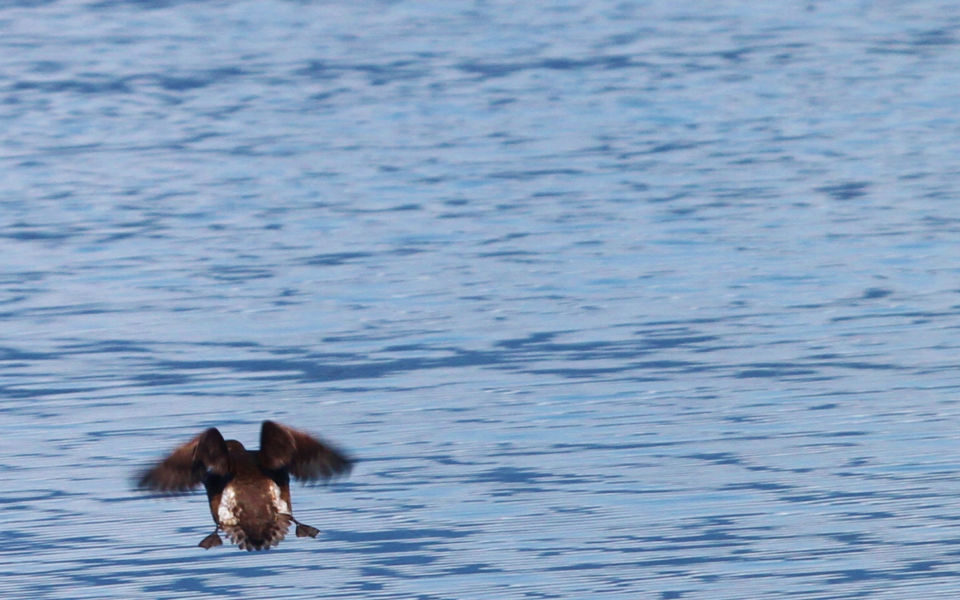Avian Influenza in Gulls

PROJECT
AVIAN INFLUENZA IN GULLS
Background
Gulls epitomize the growing challenge associated with human-wildlife interactions and offer a valuable opportunity for studying dynamics of disease emergence and transmission. Within Prince William Sound, glaucous-winged gulls (Larus glaucescens) are intimately tied to the commercial fishing industry. The distribution and abundance of gulls hinge on the fish processing facilities in Cordova that release offal into the ocean. The fish offal provides easy forage for gulls that crowd along docks and roof tops. This interaction deserves greater attention because of the potential for gulls to aid the spread of pathogens between urban and marine ecosystems, complicating disease control efforts.
To address these issues, biologists from the Prince William Sound Science Center and Tufts University are working to better understand how the distribution of glaucous-winged gulls changes in response to fish processing activities in Cordova and whether the congregation of gulls is influencing the prevalence, transmission, and evolution of avian influenza (aka “bird flu”) in the population. This study will aid in identifying natural and man-made drivers of avian influenza in wild birds, with the goal of developing strategies that reduce the risk of zoonotic disease transmission.
Methods
Glaucous-winged gulls are captured near the city dock using a net launcher and marked with colorful leg bands to evaluate connectivity between Cordova and a large, nearby breeding colony on the Copper River Delta, and to determine larger-scale migration patterns. Swabs and blood samples are collected and tested for avian influenza, which can spike in the population as gulls congregate in large numbers at the city docks after fledging from the colony. Surveys are performed to estimate changes in gull abundance and age composition from April to September. The demographic, disease, and fisheries productivity data are analyzed to identify the mechanisms of disease transmission in the gulls.
What we will learn
This study provides a unique opportunity to understand how human activities may alter the behavior of animal hosts, determine which factors are important in the evolution of new viral strains, and potentially enable us to predict when and how outbreaks of zoonotic pathogens will occur.
If you spot a banded gull, please send your report to Nichola Hill (Nichola.Hill@tufts.edu) or Mary Anne Bishop (Mbishop@pwssc.org). For more information and for project updates, visit https://gullwatch.vet.tufts.edu.
PRINCIPAL INVESTIGATORS
Mary Anne Bishop, Ph.D.PWS Science Center
Mbishop@pwssc.org
Nichola Hill, Ph.D.
Tufts University
Nichola.Hill@tufts.edu
Jonathan Runstadler, Ph.D.
Tufts University
Jonathan.Runstadler@tufts.edu




